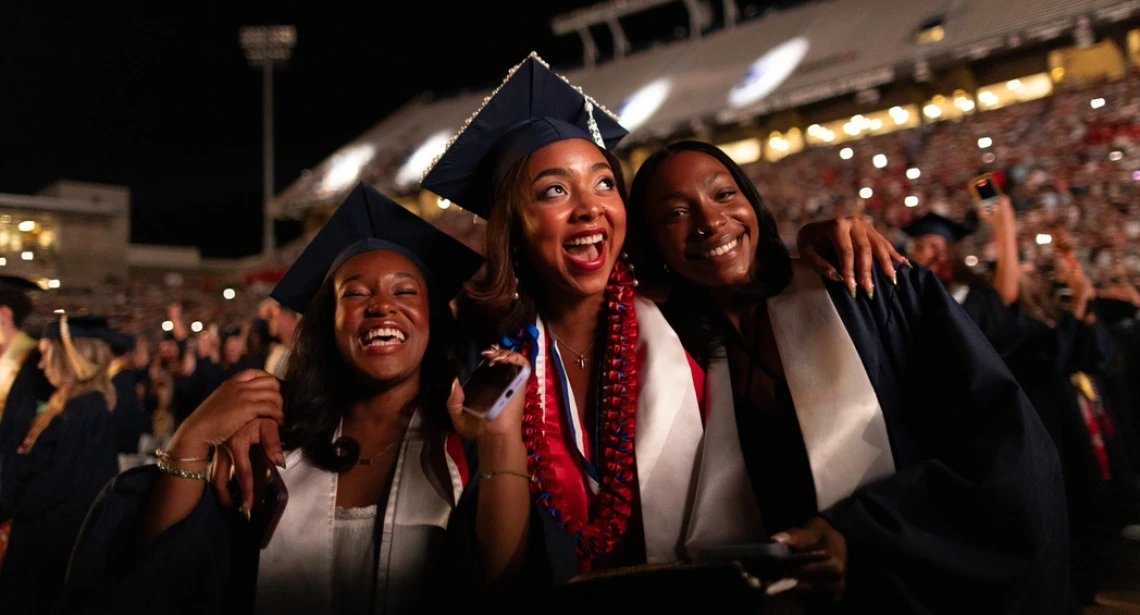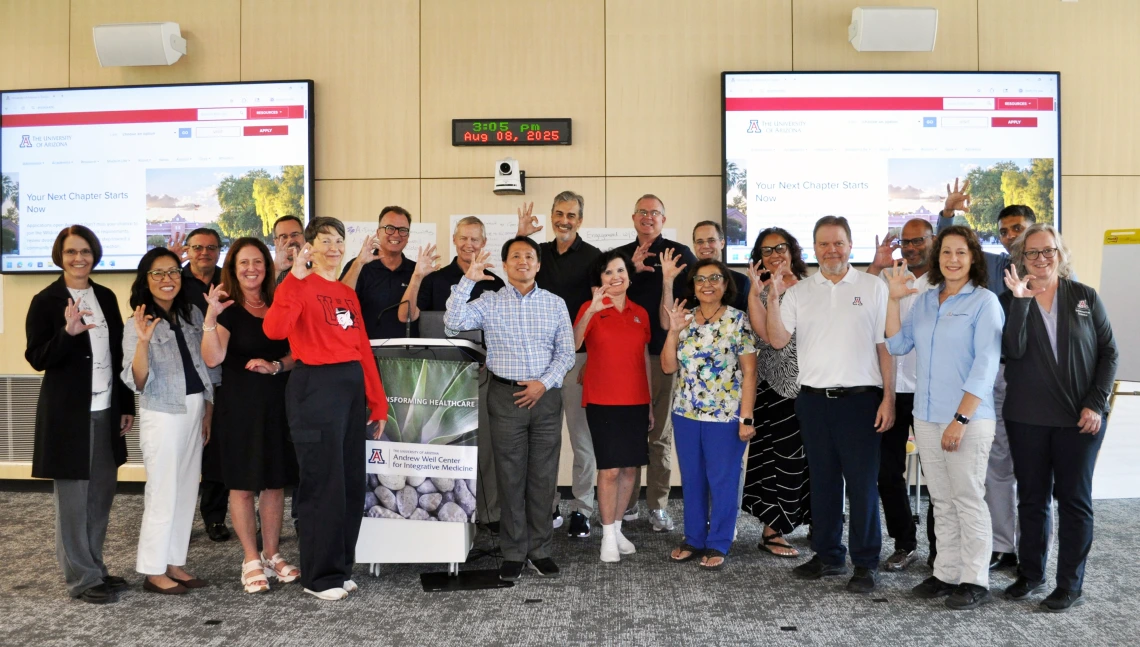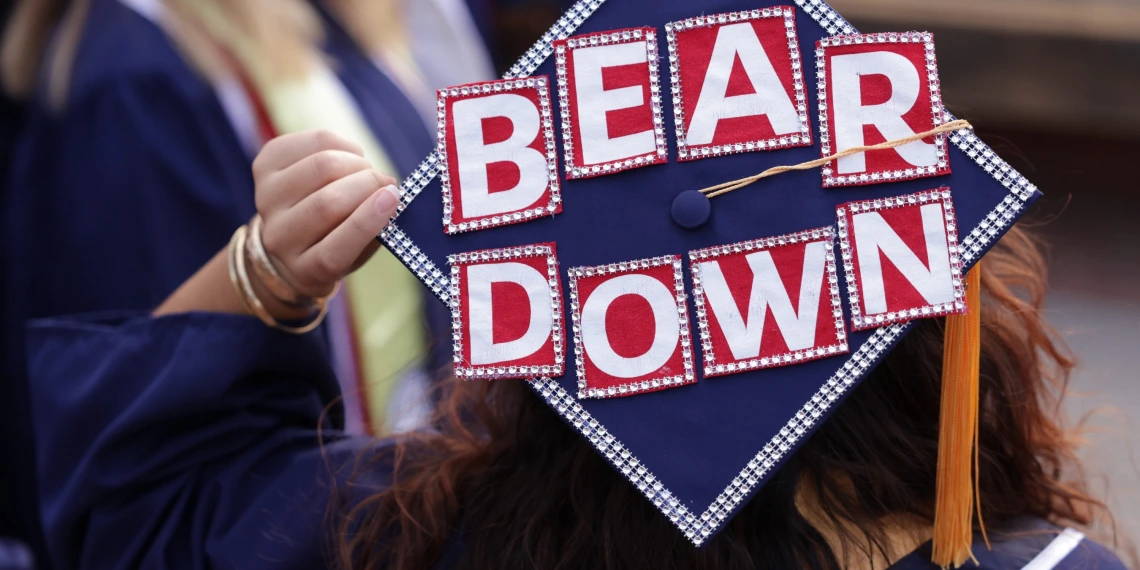Success for Every Student
Updated 9:45 a.m., November 10, 2025

“Through these conversations, I hope we can uncover ways to make meaningful and lasting improvements in how we support our students - from the moment they apply, through graduation, and as they go on to make an impact in our communities." - Provost Patricia A. Prelock
Q&A: Provost Prelock Shares the Biggest Takeaways from her Campus Conversations
Updates
Advancing Student Success Through Organizational Realignment
The Office of the Provost provides a wide range of high-quality programs and services to support student success through dedicated teams in Enrollment Management and Admissions, Academic Affairs, and Student Affairs. Our faculty and staff are deeply committed to this work, and our programs have demonstrated meaningful impact.
As you shared, students often struggle to navigate our resources. Services can seem fragmented and duplicated across units, creating confusion and barriers to access. Students may find themselves bouncing from office to office and feeling uncertain where to turn for the support they need to succeed.
To help address these challenges, we are implementing a functional reorganization to create a coordinated student experience that guides students seamlessly from their time as prospective students through enrollment and beyond. This organizational chart reflects the changes presented in the message Provost Prelock shared with campus community on Monday, Nov. 10.
Advancing Student Success: Campus Conversations with Provost Prelock
Listening to Our Community
In June, Provost Prelock launched a series of listening sessions with faculty, staff, students, alumni, donors, and community partners. These conversations, held through September, are part of her commitment to advancing the University of Arizona’s strategic imperatives, especially Success for Every Student.
This imperative emphasizes academic excellence and holistic student support, with a focus on:
- Improving retention and graduation rates
- Better integrating student services across the university
- Supporting and empowering faculty and staff to maximize their impact on students
Through these sessions, Provost Prelock met with more than 420 individuals, including alumni, donors, community partners, tribal leaders, staff, faculty, and students.
Audience | Sessions Dates |
| Donors, alumni, community leaders, partners, and staff | June 23, 25, 27 & 30 |
| Staff from colleges, academic departments and students support units reporting directly to the Office of the Provost | July 2, 8, 10 & 24 |
| Faculty and instructors | Aug. 6 & 19; Sept. 2 & 8 |
| Undergraduate and graduate students | Sept. 3, 5, 9 & 10 |
| Native American students | Sept. 12 |
| Non-Main Campus/Online students | Sept. 15 |
| Non-Main Campus/Remote/Online faculty and staff | Sept. 16 |
| Student leadership | Sept. 22 |
Emerging Themes
It is clear from these conversations that the University of Arizona has exceptional faculty and staff who are deeply committed to student success. The institution offers a wide range of resources and services to support students, yet we also heard about several needs and opportunities for enhancement, particularly strengthening the experience of students in their first two years.
Key themes emerging from these discussions include:
- The need for a more coordinated, seamless pathway to the many services and support we provide for students.
- Consistent student-centered advising.
- Utilization of the best practices that exist on campus.
- Opportunities for mentorship, research and experiential learning.
- Ongoing communication about the changes taking place and the desired outcomes.
- Supporting advising and other student services staff.
- Better transfer pathways with community colleges.
- Developing financial literacy opportunities for students
- Ensuring accessible health and mental health support

“These insights are shaping the university’s Academic Success Goals and new initiatives to better support every Wildcat.”
Academic Success Goals
This feedback is shaping the university’s Academic Success Goals, which focus on measurable outcomes to:
- Increase student retention and graduation rates
- Improve career readiness and outcomes
- Strengthen the student experience
- Build a sense of community
In addition to these listening sessions, Provost Prelock regularly meets with the Academic Leadership Council, comprised of academic deans and members of her leadership team. She also met with various campus leaders during Heads Up Fall Forum, New Heads meeting, President’s Academic Leadership Forum, Faculty Senate Executive Council, etc. These discussions are centered on the creation and implementation of the academic success goals that serve as a guiding framework for all faculty, staff, and students involved in advancing the university’s academic mission and strategies to support student success at every level of the university.
Student Success Initiatives

“Through these efforts, the University of Arizona is building a more connected, student-centered experience that empowers every Wildcat to succeed.”
Campus Community Connections
- Strengthen the Student Culture and Engagement Hub, ensuring all students feel a sense of identity, belonging, and access to resources.
Community College Connections
- Partnership conversations: Meeting with community college leaders to discuss opportunities for closer collaboration.
- Pathway development: Strengthening academic and advising pathways to create clearer, more seamless transitions to the U of A.
- Transfer process improvements: Identifying ways to simplify admissions, credit transfer, and onboarding for transfer students.
- Student support: Exploring additional resources and services to better support transfer students’ academic, social, and career success once at the U of A.
Enrollment and Admission Initiatives
- Streamline and enhance enrollment, admissions, financial aid, merit allocation, and onboarding/welcome programs.
- Ensure a seamless handoff of new students into the First-Year Student Experience, with coordinated services and resources that set the foundation for success.
Academic Initiatives - UNIV 101/301
- Establish an advisory task force to review and enhance UNIV 101 and UNIV 301, which anchor the 32-credit general education curriculum.
- Focus on design thinking approaches to refine course goals, learning outcomes, and implementation strategies.
- Identify course strengths, gaps, and opportunities for improvement while ensuring alignment with university-wide student success priorities.
Strategic Advising for Student Success
- Position academic advising as a strategic function that drives student success by improving retention, graduation rates, and engagement across the undergraduate experience.
- Elevate the quality and consistency of advising.
- Strengthen advisor capacity through training and investment.
- Enhance the student experience through structured advising milestones and integrated support.
Academic Advising Salary Review
- Review advisor compensation against peers and internal benchmarks, and assess its impact on retention, morale, and the student experience.
- Recommend competitive, equitable salary ranges, career pathways, and recognition, supported by a phased plan to bring pay closer to market and strengthen advising.
- Propose a framework with funding strategies, timelines, and a clear communication plan.
Undergraduate Research Activities
- Realign and expand undergraduate research opportunities.
- Create pathways that connect students with mentors and research experiences.

